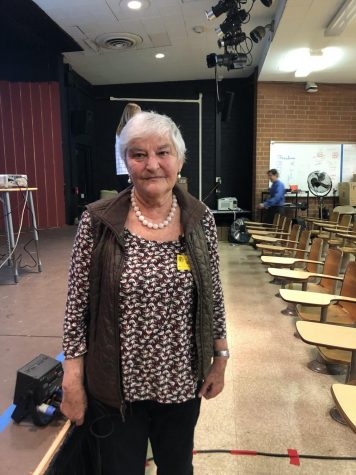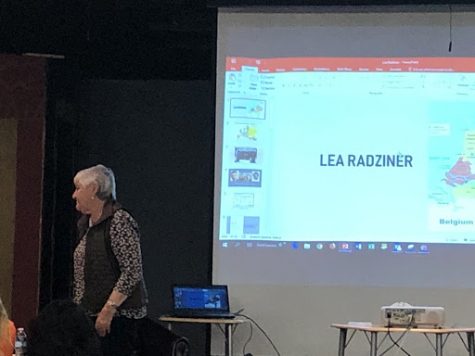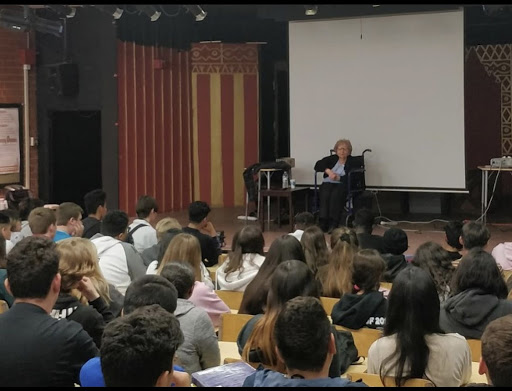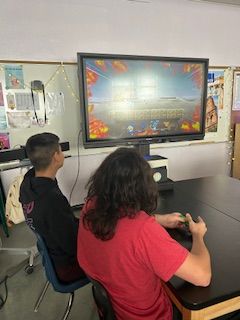Holocaust Survivors Share Their Stories with Taft Students
On March 5th, three survivors of the tragic Holocaust were invited to Taft to speak about their experience of the historic event. Ruth Birndorf, Lea Radziner, and Edith Frankie gave the students at Taft their insight of the terrible conditions they had to live in, in order to survive this tragedy so they could tell their stories to millions around the world.
 Ruth Birndorf shared her perspective of the events and the emotions that she and the other girls that hid with her in the camp went through. Birndorf and her sister went into hiding for two years in different cities. She was first hidden in an attic with a different family in order to escape the Nazis. Her room was overcrowded with girls of all ages, and to this day Birndorf has developed a sense of claustrophobia, “don’t lock me in, I’ll scream. Even during medical procedures, I jump, don’t touch me,” said Birndorf. There were very few supplies she and her roommates were given, they had scant food and no paper to even communicate. Bathrooms used to be a small pail kept at the corner of the room, which they hoped someone would empty in the middle of the night. Birndorf’s camp SS would come in to check on all the kids at night and would usually threaten to give them away. Fear and distrust are some things that she just couldn’t forget because of her past. “Even to this day, when I go to the cinema, I look for the exit signs.”. They had to be very quiet and still, even the shadows cast on the walls by their bodies were a giveaway. In the morning, Birndorf, her mother, and her sister would hide together, but as night came, she had no idea where her family was. The hiding family would have a very difficult time with providing enough material for all of the people living with them, so their son who was also a part of the resistance would raid City Hall to gather real items that their family could survive off of. At one point their son was caught in the act of the robbery but managed to quickly escape. In the fear of the Germans finding out, Birndorf and her sister were transported to another city for the next year or so. Her second hiding family had kept her well. Although her birth mother had to practically beg for the family to let them stay, Birndorf was given good treatment.
Ruth Birndorf shared her perspective of the events and the emotions that she and the other girls that hid with her in the camp went through. Birndorf and her sister went into hiding for two years in different cities. She was first hidden in an attic with a different family in order to escape the Nazis. Her room was overcrowded with girls of all ages, and to this day Birndorf has developed a sense of claustrophobia, “don’t lock me in, I’ll scream. Even during medical procedures, I jump, don’t touch me,” said Birndorf. There were very few supplies she and her roommates were given, they had scant food and no paper to even communicate. Bathrooms used to be a small pail kept at the corner of the room, which they hoped someone would empty in the middle of the night. Birndorf’s camp SS would come in to check on all the kids at night and would usually threaten to give them away. Fear and distrust are some things that she just couldn’t forget because of her past. “Even to this day, when I go to the cinema, I look for the exit signs.”. They had to be very quiet and still, even the shadows cast on the walls by their bodies were a giveaway. In the morning, Birndorf, her mother, and her sister would hide together, but as night came, she had no idea where her family was. The hiding family would have a very difficult time with providing enough material for all of the people living with them, so their son who was also a part of the resistance would raid City Hall to gather real items that their family could survive off of. At one point their son was caught in the act of the robbery but managed to quickly escape. In the fear of the Germans finding out, Birndorf and her sister were transported to another city for the next year or so. Her second hiding family had kept her well. Although her birth mother had to practically beg for the family to let them stay, Birndorf was given good treatment.
After the war was over, Birndorf wanted to pursue her education. Even though she had never been to school, she was determined that nothing would stop her from achieving her goals. She went up to a “Pre-College” and asked for admission as she explained her story, but the president of the school would not allow her to enter the school without any previous records. Being rejected from her first school, Birndorf didn’t give up, later going to a Catholic school and telling her story to the nun there. The nun seemed to completely understand her situation and gave her admission. Birndorf continued her education and graduated from college. All of her friends that were in camps with her ended up becoming nurses, doctors, and therapists, all jobs in the public service field, so they could help other people like them.
 Birndorf further advises the young generation to live freely and openly and to make memories with people face to face. She further says that the younger generation needs to physically interact with people in public and give up most of the virtual interactions. “I’ve seen so many people at diners, glued to their phones instead of sharing their experiences and actually connecting with one another.” Birndorf said. She encourages people to speak up against hate, because if we remain quiet, no one will stand up for any change leading to a disaster. She shares her story with people in order for them to learn from her past and not make the same mistakes she made.
Birndorf further advises the young generation to live freely and openly and to make memories with people face to face. She further says that the younger generation needs to physically interact with people in public and give up most of the virtual interactions. “I’ve seen so many people at diners, glued to their phones instead of sharing their experiences and actually connecting with one another.” Birndorf said. She encourages people to speak up against hate, because if we remain quiet, no one will stand up for any change leading to a disaster. She shares her story with people in order for them to learn from her past and not make the same mistakes she made.
A Sophmore, an introvert, a movie fanatic, an average bibliophile, and a novice writer.







